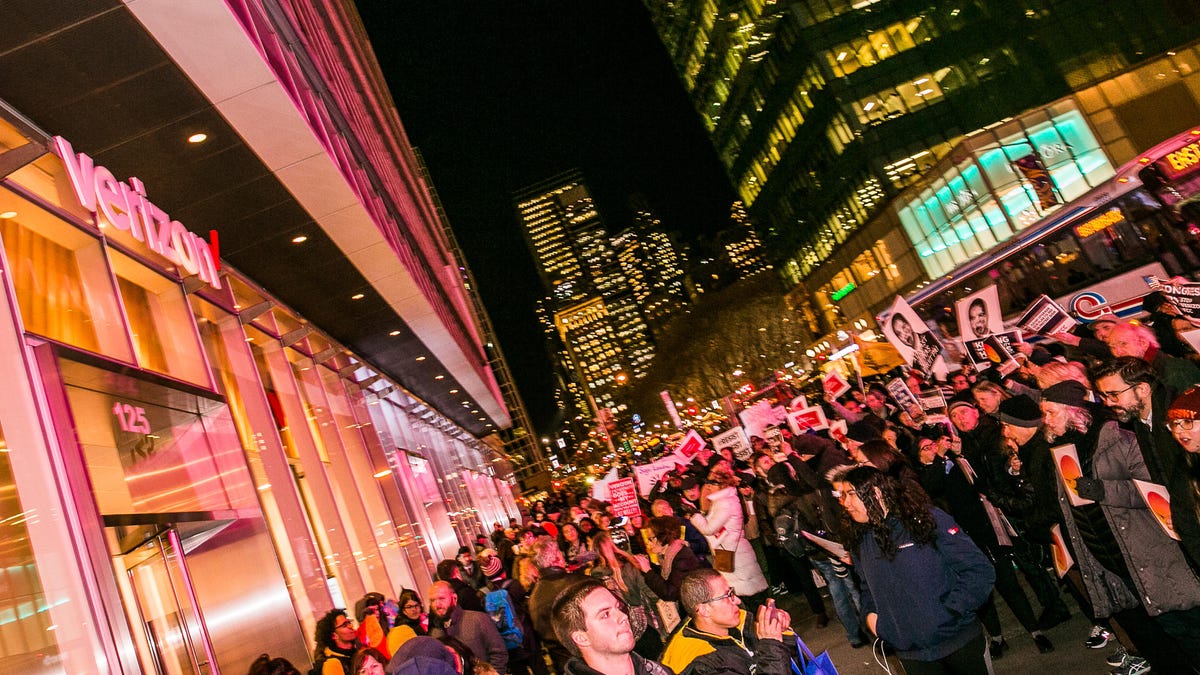ACLU: Net neutrality can be saved with more local broadband
The American Civil Liberties Union is calling for more municipal governments to create their own internet service option to ensure net neutrality and close the digital divide.

Net neutrality protestors in New York.
The American Civil Liberties Union is pointing to a potential savior for net neutrality: your local municipal government.
The ACLU published a report titled "The Public Internet Option," calling for more municipal governments to offer their own internet service, potentially competing for subscribers with the likes of telecommunications and cable companies.
"In offering public broadband service, local governments need to make sure that access is consistent with free speech values and respects net neutrality principles," the report said.
The report comes as the Federal Communications Commission and Chairman Ajit Pai, appointed by President Donald Trump, is set to dismantle the existing rules governing an open internet. The rules were designed to prevent internet service providers from abusing their powers and prioritizing some businesses' traffic over others'. But Pai and the ISPs argue the rules were antiquated and stifled investment in new technology.
More local broadband, which would require investment by municipal governments, could also close the digital divide by offering internet access to more people, the ACLU argues. It cited a Pew Research study that showed that while 72 percent of white American households have broadband access, only 54 percent of blacks and half of Hispanic households have access.

